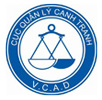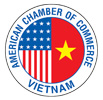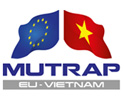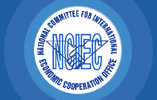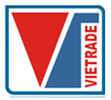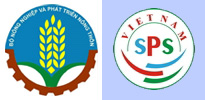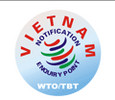
Up to now, 131 of 143 surveyed countries and territories have claimed to allow the application of National Accounting Standards or International Financial Reporting Standards (IFRS) in different forms. Vietnam is one of the few countries that has not yet applied IFRS for the preparation and presentation of financial statements. In response to the requirement of national governance reform, management innovation for the national financial sector as well as public finance, the application of IFRS is becoming an urgent issue.
Essential
Speaking about the application of IFRS, Deputy Minister of Finance Do Hoang Anh Tuan emphasized three essential points. First of all, it is due to the request of the Government. The Socio-Economic Development Plan for the period 2011-2020 as well as the Socio-Economic Development Strategy for the period 2021-2030 set out the requirements for sustainable development, improving the business and investment environment, and enhancing Vietnam’s national competitiveness. To achieve that, social investment is concerned with the required level of investment of 32-34% of GDP. In social investment, investment from the state budget accounts for 7-7.5% of GDP.
According to the Deputy Minister of Finance, for sustainable and comprehensive socio-economic development, transparency and step by step implementation of international standards with financial statements is necessary to create a public, transparent business environment, to attract domestic and foreign investment capital, especially from the private sector – the most important driving force for socio-economic development in Vietnam.
The second point proposed by the Vice Minister of Finance is the requirement of international economic integration. In 2018, Vietnam's import and export turnover reached 474 billion USD. Vietnam has participated in over 14 Free Trade Agreements (FTAs), all of which have regulations on encouraging investment capital flows and encouraging free trade for economic development. To do this, the implementation of international standards with the financial statements of the business community is necessary.
Finally, according to the Deputy Minister of Finance, another essential requirement is national governance innovation and management innovation for the national financial sector as well as public finance.
Being aware of the necessity, from 2017, the Ministry of Finance embarked on building a scheme on the roadmap and plan to implement international accounting standards in Vietnam.
IFRS requires that the published information be focused on reflecting market developments at the time of reporting. This is done through a reassessment of fair value, recoverable value of assets and liabilities, not just information at the time of transaction (original price).
Therefore, according to the drafting agency, the completion of the legal framework on accounting will help to increase confidence for those who use enterprise’s financial statements, such as shareholders, investors and credit institutions, and to protect the legal rights of the State and the public.
In particular, according to the Ministry of Finance, at present, some Vietnamese enterprises have demand to issue bonds on the international market or they are expected to list on international exchanges (such as Vingroup and Vinamilk) or they get funding in the form of loans from international financial institutions.
To accomplish this, according to the regulations of most international donors and foreign securities authorities, the presentation of financial information according to international standards is a mandatory condition.
Difficult in the short term
According to the Ministry of Finance, IFRS aims to present corporate assets and liabilities at market value at the time of reporting. This requires the market to be relatively developed to provide reliable information. Meanwhile, Vietnam’s market currently provides some basic information, including the price of listed shares and trading prices of fuel and agricultural products. Not to mention, there is a big difference between the published price of the State and the actual transaction price for some other information, such as the value of land and resources.
In addition, in order to assess the ability of debt recovery and valuation, enterprises also need other information such as credit-worthiness and market share. Therefore, the application of IFRS to a transition economy like Vietnam may face certain difficulties in the short term.
Another point is that the awareness of legal compliance and professional ethics in some businesses is not high. The Ministry of Finance said that the psychology of not wanting to publicize the financial situation or deliberately hiding the weaknesses would be a hindrance to access to the international practice. The authorities also assessed that, when applying IFRS, some initial investment costs would arise at the enterprise for the retraining of human resources and changing the information system and accounting software as well. The Ministry of Finance stated that the initial investment costs were relatively high. However, the drafting agency also emphasized that in the long run, the benefits from information transparency and attracting investors would bring more benefits than the initial costs.
Regarding the roadmap, IFRS can be divided into two phases: from 2022 to 2025 and after 2025. Specifically, the first phase from 2022 to 2025 will aim to allow businesses to voluntarily apply them. Accordingly, large enterprises that have good foundational and qualified resources will apply IFRS first to draw general experiences for others.
The second phase after 2025, on the basis of summarizing and evaluating the results of the first phase, the project will expand the scope and subjects of application in the direction of having both compulsory and voluntary objects in the application of IFRS.
Chief Representative of JICA’s Vietnam, Konaka Tetsuo:
IFRS is a very important tool; on the one hand, it helps investors get more accurate financial information and mobilize global capital. On the other hand, it has a tremendous impact on the economic activities of all domestic businesses. The level and direction of the impact depends largely on how to apply IFRS.
In Vietnam, over the past year, JICA has conducted surveys to provide Vietnam with experiences of Japan and some Asian countries in applying IFRS. At the same time, we have provided interviews with relevant Vietnamese agencies on this issue, which emphasizes the practical benefits of IFRS to Vietnam.
Source: VCN
Key words: apply, IFRS, achieve, transparency



